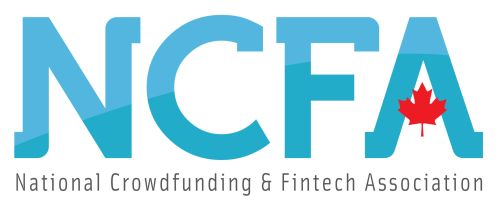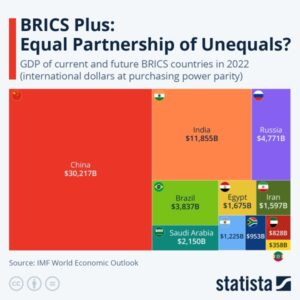Competition | Oct 18, 2023

 Image: Unsplash/Maico Amorim
Image: Unsplash/Maico AmorimThe Competition Bureau will release the findings of its study on competitive intensity in Canada from 2000 to 2020 tomorrow, Oct 19, 2023, the first of its kind both for the Bureau and in Canada (Ahem, about time)
The Competition Bureau is an independent law enforcement agency that promotes and safeguards competition for the benefit of Canadian consumers and businesses. They emphasize that competition leads to lower prices, innovation, and economic growth.
See: Ipsos Survey: Most Canadians Say (88%) We Need More Competition
The report will review various measures of competition and economic dynamism in the Canadian economy as a whole. This encompasses several indicators such as concentration, rank stability, entry and exit rates, mark-ups, and profits across all Canadian industries using data from Statistics Canada, and paints a picture of an economy that, while robust in many aspects, has seen a decline in its competitive fervor.
Briefing Scheduled for 11:15 a.m. EST
After the report’s publication, Bureau officials will conduct a technical briefing for the media to discuss the methodology and findings. They will provide opening remarks and then answer questions from the media.
The briefing is scheduled for October 19, 2023, at 11:15 a.m. EST and will be held virtually via teleconference.
See: Canada’s Competition Consultation Continues (thanks Senator Colin Deacon)
Why Does This Matter?
A decline in competitive intensity can lead to several challenges:
- Stagnation in Innovation: With fewer competitors in the market, there’s less incentive for businesses to innovate, leading to potential stagnation in product and service development.
- Higher Prices for Consumers: Reduced competition often results in higher prices as businesses face less pressure to offer competitive pricing.
- Barriers to Entry: A less competitive market can deter new entrants, further solidifying the position of existing dominant players.
Conclusion
Canada’s competitive landscape is at a pivotal juncture. While the decline in competitive intensity over the past two decades is a concern, it also offers a chance for introspection and proactive action.
See: Canada’s Competition Problem: 7 Reasons
At NCFA Canada, we remain committed to fostering an environment where every business, especially small businesses representing the back-bone of the Canadian economy, can compete and thrive, driving Canada’s economic future to new heights.

 The National Crowdfunding & Fintech Association (NCFA Canada) is a financial innovation ecosystem that provides education, market intelligence, industry stewardship, networking and funding opportunities and services to thousands of community members and works closely with industry, government, partners and affiliates to create a vibrant and innovative fintech and funding industry in Canada. Decentralized and distributed, NCFA is engaged with global stakeholders and helps incubate projects and investment in fintech, alternative finance, crowdfunding, peer-to-peer finance, payments, digital assets and tokens, artificial intelligence, blockchain, cryptocurrency, regtech, and insurtech sectors. Join Canada’s Fintech & Funding Community today FREE! Or become a contributing member and get perks. For more information, please visit: www.ncfacanada.org
The National Crowdfunding & Fintech Association (NCFA Canada) is a financial innovation ecosystem that provides education, market intelligence, industry stewardship, networking and funding opportunities and services to thousands of community members and works closely with industry, government, partners and affiliates to create a vibrant and innovative fintech and funding industry in Canada. Decentralized and distributed, NCFA is engaged with global stakeholders and helps incubate projects and investment in fintech, alternative finance, crowdfunding, peer-to-peer finance, payments, digital assets and tokens, artificial intelligence, blockchain, cryptocurrency, regtech, and insurtech sectors. Join Canada’s Fintech & Funding Community today FREE! Or become a contributing member and get perks. For more information, please visit: www.ncfacanada.org
Related Posts
- SEO Powered Content & PR Distribution. Get Amplified Today.
- PlatoData.Network Vertical Generative Ai. Empower Yourself. Access Here.
- PlatoAiStream. Web3 Intelligence. Knowledge Amplified. Access Here.
- PlatoESG. Carbon, CleanTech, Energy, Environment, Solar, Waste Management. Access Here.
- PlatoHealth. Biotech and Clinical Trials Intelligence. Access Here.
- Source: https://ncfacanada.org/canadas-declining-competitive-intensity-a-2023-insight/
- :has
- :is
- :where
- 11
- 15%
- 150
- 19
- 200
- 2000
- 2018
- 2020
- 2023
- 300
- 32
- 7
- a
- About
- across
- Action
- affiliates
- agency
- All
- also
- alternative
- alternative finance
- an
- and
- answer
- artificial
- artificial intelligence
- AS
- aspects
- Assets
- At
- Banking
- BE
- become
- benefit
- blockchain
- both
- Briefing
- Bureau
- business
- businesses
- cache
- CAN
- Canada
- Canadian
- Canadians
- challenges
- Chance
- closely
- committed
- community
- compete
- competition
- competitive
- competitors
- concentration
- Concern
- Conduct
- consultation
- Consumers
- continues
- create
- Crowdfunding
- cryptocurrency
- data
- decades
- decentralized
- Decline
- Declining
- Development
- digital
- Digital Assets
- discuss
- distributed
- does
- dominant
- driving
- Economic
- Economic growth
- economy
- ecosystem
- Education
- emphasize
- encompasses
- enforcement
- engaged
- entrants
- entry
- Environment
- especially
- Ether (ETH)
- Every
- Exit
- Face
- fervor
- fewer
- finance
- financial
- financial innovation
- findings
- fintech
- fintechs
- First
- For
- For Consumers
- fostering
- from
- funding
- funding opportunities
- further
- future
- gap
- get
- Global
- Government
- Growth
- heights
- Held
- helps
- High
- higher
- HTML
- http
- HTTPS
- image
- implications
- in
- Incentive
- independent
- Indicators
- industries
- industry
- information
- innovate
- Innovation
- innovative
- insight
- Insurtech
- Intelligence
- investment
- IT
- ITS
- Jan
- jpg
- Kind
- landscape
- Law
- law enforcement
- lead
- leading
- Leads
- less
- lower
- many
- Market
- Matter
- max-width
- measures
- Media
- member
- Members
- Methodology
- more
- most
- Need
- networking
- New
- Oct
- october
- of
- offer
- Offers
- officials
- often
- on
- opening
- opportunities
- or
- over
- partners
- past
- payments
- peer to peer
- perks
- picture
- pivotal
- plato
- Plato Data Intelligence
- PlatoData
- please
- position
- potential
- pressure
- Prices
- pricing
- Proactive
- Problem
- Product
- profits
- projects
- promotes
- provide
- provides
- Publication
- Questions
- rank
- Rates
- reasons
- Reduced
- Regtech
- remain
- report
- representing
- Results
- review
- robust
- s
- safeguards
- say
- scheduled
- Sectors
- seen
- Senator
- service
- Services
- several
- small
- small businesses
- solidifying
- Stability
- STAGNATION
- stakeholders
- statistics
- Stewardship
- Study
- such
- Survey
- Technical
- thanks
- that
- The
- then
- There.
- they
- this
- thousands
- Thrive
- time
- to
- today
- Tokens
- tomorrow
- two
- Unsplash
- using
- various
- via
- vibrant
- virtually
- Visit
- we
- while
- whole
- will
- with
- works
- zephyrnet











